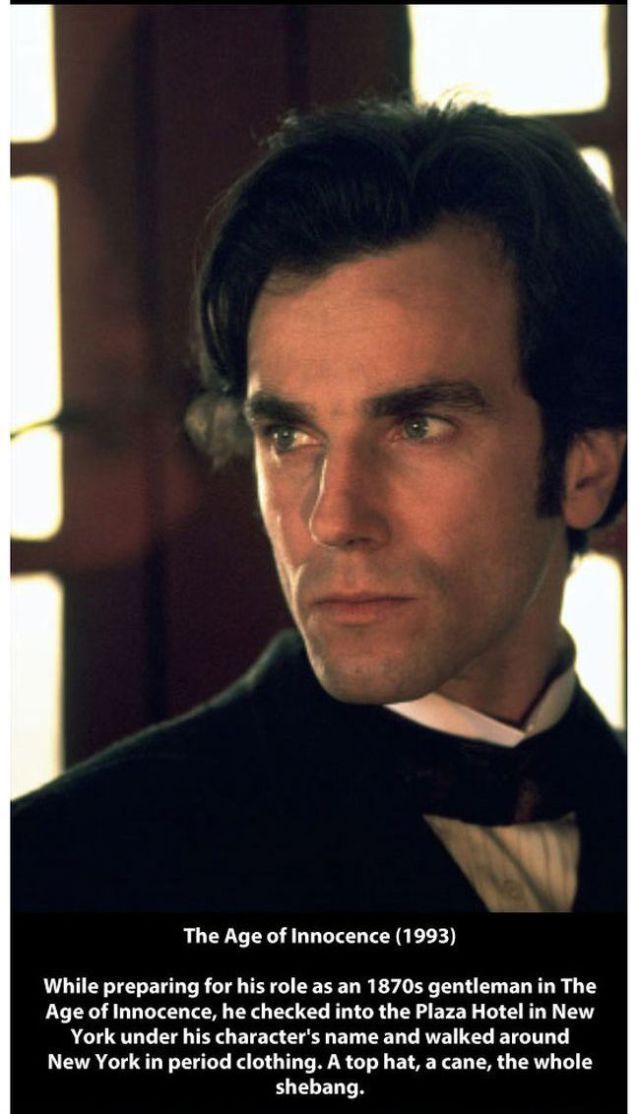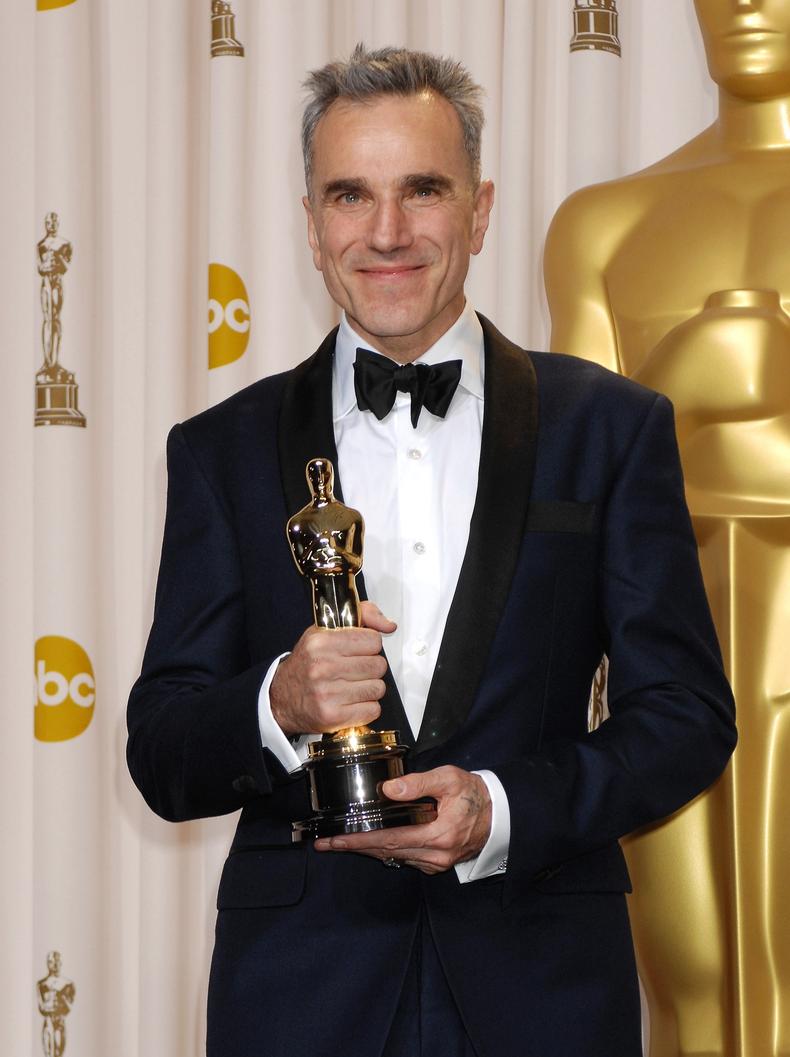Daniel Day-Lewis: Method Acting Legend [Explained]
Have you ever witnessed a performance so breathtakingly real, so utterly captivating, that you forgot you were watching a character and felt you were peering into the very soul of a human being? Daniel Day-Lewis isn't just an actor; he's a chameleon of the craft, a master of transformation who has irrevocably redefined the boundaries of method acting.
This technique, known as method acting, isn't mere imitation. It's a profound immersion, a deep dive into the psychological and emotional landscape of a character that demands unparalleled commitment and often blurs the lines between reality and performance. Day-Lewis, arguably its most celebrated modern practitioner, takes this already demanding approach to its absolute zenith.
| Category | Information |
|---|---|
| Full Name | Daniel Michael Blake Day-Lewis |
| Date of Birth | April 29, 1957 |
| Place of Birth | London, England |
| Nationality | British-Irish |
| Occupation | Actor (Retired) |
| Years Active | 1971-2017 |
| Education | Bedales School, Bristol Old Vic Theatre School |
| Spouse(s) | Isabelle Adjani (1989-1995), Rebecca Miller (1996-present) |
| Children | Gabriel-Kane Day-Lewis (with Adjani), Ronan Cal Day-Lewis, Cashel Blake Day-Lewis (with Miller) |
| Notable Roles | Christy Brown (My Left Foot), Hawkeye (The Last of the Mohicans), Gerry Conlon (In the Name of the Father), Bill 'The Butcher' Cutting (Gangs of New York), Daniel Plainview (There Will Be Blood), Abraham Lincoln (Lincoln), Reynolds Woodcock (Phantom Thread) |
| Awards | 3 Academy Awards for Best Actor, 2 Golden Globe Awards, 4 BAFTA Awards, numerous other accolades |
| Method Acting Techniques | Immersive research, physical transformation, emotional recall, isolation, complete character immersion. |
| Website | Britannica - Daniel Day-Lewis Biography |
To understand the profound impact Day-Lewis has had, we must first journey into the world of method acting itself. The seeds of this controversial yet compelling technique were sown by the legendary Constantin Stanislavski, a Russian actor and director who revolutionized acting training at the Moscow Art Theatre in the late 19th and early 20th centuries. Stanislavski sought to replace the stylized, presentational acting of his era with a more naturalistic and truthful approach. He believed that actors should draw upon their own personal experiences and emotions to create believable and emotionally resonant performances. His system, initially known as the 'Stanislavski System,' later evolved into what is commonly known as 'method acting' in the United States, largely through the interpretations and adaptations of figures like Lee Strasberg at the Actors Studio in New York City.
- Unveiling The World Of Ibomma Telugu Movies New 2024
- Is Die Hard On Netflix Or Prime Lets Crack This Holiday Movie Mystery
The core principles of method acting revolve around emotional recall, where actors delve into their past experiences to find parallels with the emotions of their characters. This can involve intense introspection, revisiting painful memories, and even undergoing psychological counseling to unlock the necessary emotional depth. Another key element is 'sense memory,' where actors attempt to recreate sensory experiences, such as the smell of a particular place or the feeling of a specific texture, to heighten their emotional connection to the scene. Physical transformation is also paramount, with actors often undergoing significant changes to their appearance, posture, and voice to fully embody the character. This might involve gaining or losing weight, learning a new skill, or adopting a specific accent.
However, it is the unwavering commitment to staying in character, both on and off the set, that truly defines the most extreme examples of method acting. This commitment, taken to its furthest extent by actors like Day-Lewis, can involve living as the character for months, or even years, immersing oneself in their world, and refusing to break character even when the cameras are not rolling. This level of dedication has been both lauded as a testament to artistic integrity and criticized as being excessive and even detrimental to the actor's well-being.
Daniel Day-Lewis's career is replete with examples of this intense, immersive approach. For his portrayal of Christy Brown, a writer and painter with cerebral palsy, in the 1989 film My Left Foot, Day-Lewis famously refused to leave his wheelchair, even between takes. Crew members were tasked with carrying him across the set, feeding him, and tending to his personal needs. He spent months living at the Sandymount School for cerebral palsy in Dublin, learning to communicate and interact with individuals with similar disabilities. This unwavering commitment earned him his first Academy Award for Best Actor and cemented his reputation as a force to be reckoned with.
- Onlyfans Leak What You Need To Know And How To Stay Safe
- Unveiling Filmywap Com Your Goto Destination For Movies And Entertainment
For The Last of the Mohicans (1992), he underwent rigorous survival training, learning to live off the land, track animals, and build canoes. He reportedly lived in the wilderness for weeks, immersing himself in the life of Hawkeye, a white man raised by the Mohican tribe. He even learned to skin animals and build a canoe, skills he employed both on and off-screen to further inhabit the character. The physicality he brought to the role, the raw intensity of his performance, was undeniable, captivating audiences and critics alike.
His portrayal of Gerry Conlon, a young Irishman wrongly convicted of the Guildford pub bombings, in In the Name of the Father (1993), saw him spend time in prison, losing weight and immersing himself in the harsh realities of incarceration. He even spent two days and nights in solitary confinement to better understand the psychological impact of wrongful imprisonment. The film was a powerful indictment of the British justice system and Day-Lewis's performance, fueled by his deep empathy and understanding of Conlon's plight, was universally praised.
In Martin Scorsese's Gangs of New York (2002), Day-Lewis transformed himself into Bill 'The Butcher' Cutting, a ruthless and charismatic gang leader. He took butchery lessons, honing his skills with knives and cleavers, and reportedly sharpened his blades between takes to maintain the character's intimidating presence. He refused to break character, even during breaks in filming, further intimidating his fellow actors and immersing himself in the brutal world of 19th-century New York gangs. This dedication earned him another Academy Award nomination and solidified his status as one of the most compelling and unpredictable actors of his generation.
His performance as Daniel Plainview, an oil tycoon driven by greed and ambition, in Paul Thomas Anderson's There Will Be Blood (2007), is often considered his magnum opus. He immersed himself in the history of the oil industry, reading extensively and researching the lives of early oil barons. He even learned to operate an oil derrick. Day-Lewis's portrayal of Plainview is a masterclass in nuanced character development, a descent into the dark heart of ambition that is both terrifying and strangely compelling. The performance earned him his second Academy Award for Best Actor, cementing his place in cinematic history.
For Steven Spielberg's Lincoln (2012), Day-Lewis spent years researching the life of Abraham Lincoln, reading biographies, studying photographs, and even consulting with Lincoln scholars. He adopted Lincoln's distinctive voice and posture, and reportedly insisted on being addressed as "Mr. President" by the cast and crew. His performance was lauded for its authenticity and depth, capturing the weight of responsibility and the moral complexities of Lincoln's presidency. This role earned him his unprecedented third Academy Award for Best Actor, a feat unmatched by any other male actor in the history of the Academy Awards.
His final role, as Reynolds Woodcock, a demanding and eccentric dressmaker in Paul Thomas Anderson's Phantom Thread (2017), saw him learn to sew and design clothes. He studied the techniques of haute couture, apprenticing with master tailors and immersing himself in the world of fashion. The film is a haunting and beautiful exploration of creativity, obsession, and the complex dynamics of relationships, with Day-Lewis delivering a performance that is both subtle and powerful.
Day-Lewis's dedication to his craft is undeniable, but his extreme method acting techniques have not been without controversy. Some critics argue that his commitment to staying in character can be disruptive and even disrespectful to his fellow actors and crew members. Others question the psychological toll that such intense immersion can take on the actor himself. There have been reports of Day-Lewis suffering from emotional exhaustion and even psychological distress as a result of his method acting practices.
Despite the controversy, Daniel Day-Lewis remains one of the most admired and respected actors of our time. His performances are transformative, his dedication is unwavering, and his impact on the art of acting is undeniable. He has raised the bar for what is possible in cinematic performance, inspiring a new generation of actors to push the boundaries of their craft. His retirement from acting in 2017 marked the end of an era, leaving a void in the film industry that may never be filled. He leaves behind a legacy of unforgettable performances, a testament to the power of dedication, and a profound redefinition of what it means to be a method actor.
The question remains: Is this extreme immersion necessary for great acting? Is the line between dedication and obsession blurred beyond recognition? The answer, like the man himself, is complex and multifaceted. But one thing is certain: Daniel Day-Lewis has left an indelible mark on the world of acting, forever changing the way we perceive and appreciate the art of cinematic transformation.
- Come And See Full Movie A Cinematic Masterpiece That Will Leave You Speechless
- Sahu Viral Video The Phenomenon Thats Got Everyone Talking

Daniel Day Lewis The Legendary Actor Who Redefined Method Acting

Examples of the Extreme Method Acting of Daniel Day Lewis (11 pics

Method Actors Who Went to Extremes Backstage